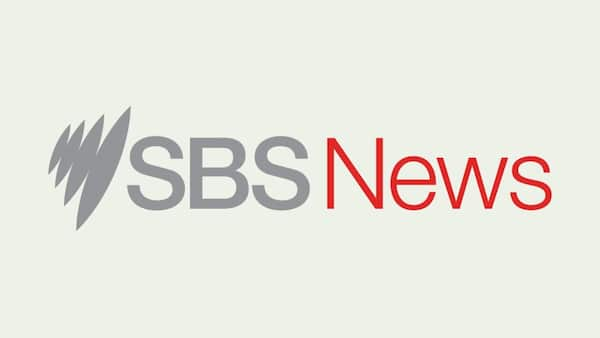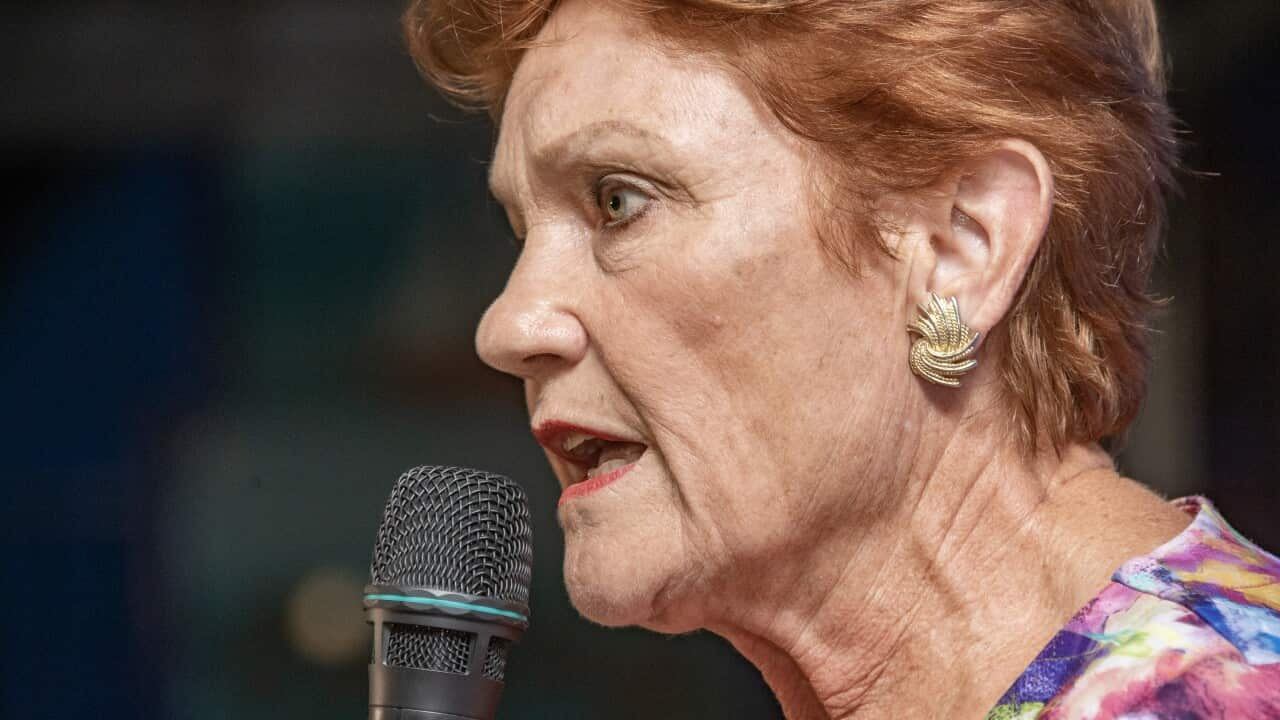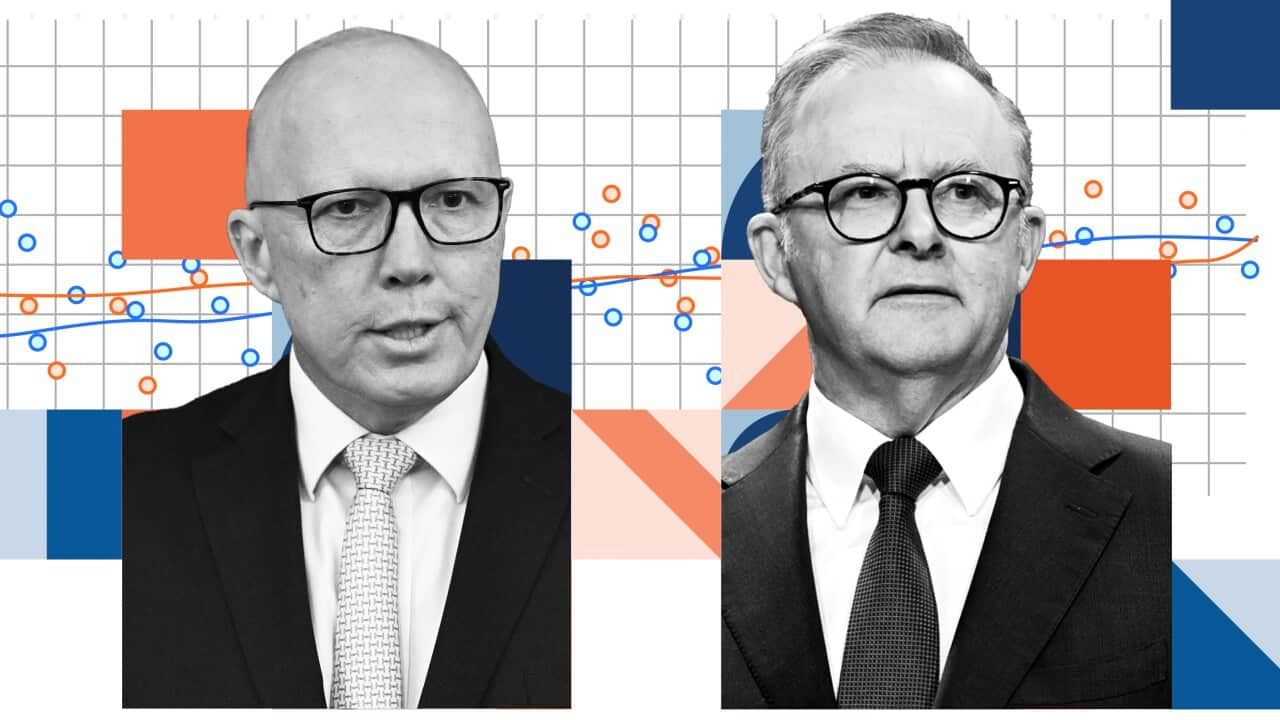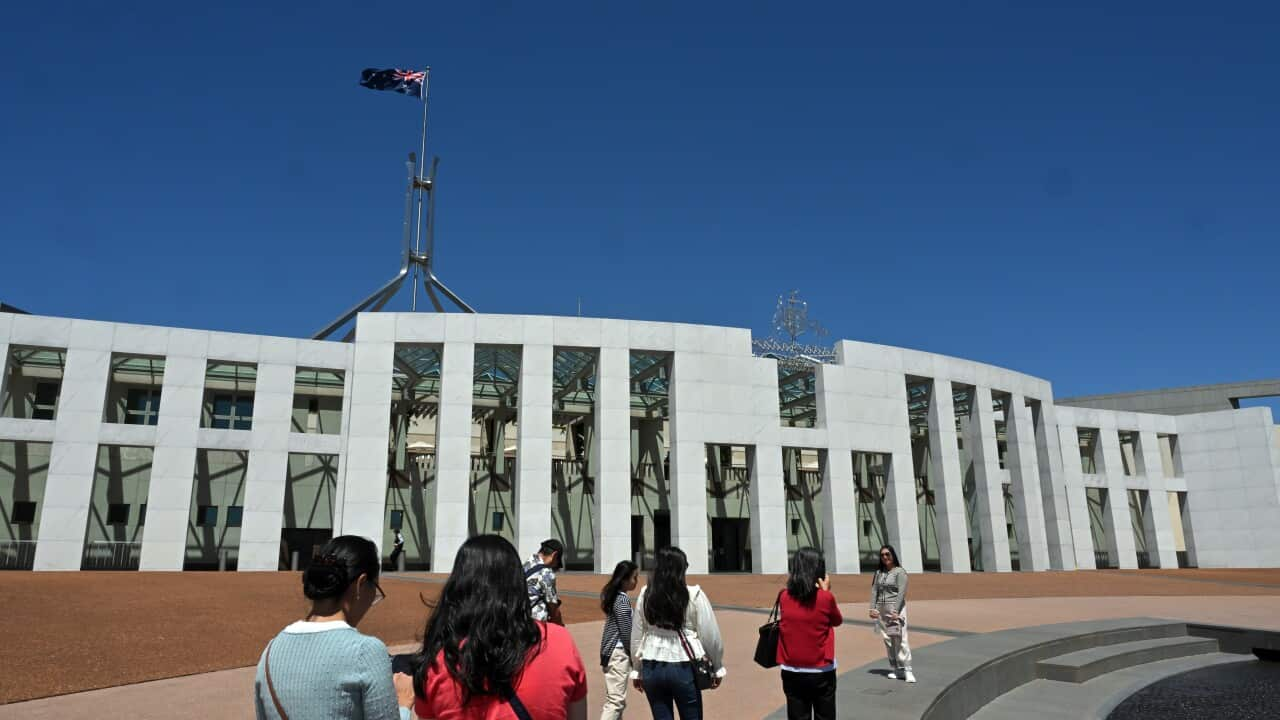Pauline Hanson's One Nation could see an uptick in support on polling day as experts point to concerns over immigration and broader discontent with the major parties.
Recent polls suggest the right-wing party is attracting an increase in primary support, and could secure more Senate seats this election.
It comes as the Coalition listed One Nation above Labor on its how-to-vote cards in some seats, including some where the party is preferenced second.
One Nation has also listed Coalition candidates second in some key seats.
Who is One Nation?
Senator Hanson at the 1996 federal election.
She was disendorsed by the party shortly before the vote due to comments she made about Indigenous entitlements. Hanson went on to win the seat as an independent.
In her maiden speech at the time, Hanson told the parliament: "I believe we are in danger of being swamped by Asians".
"They have their own culture and religion, form ghettos and do not assimilate ... a truly multicultural country can never be strong or united," she said.
Hanson called for the country's immigration policy to be "radically reviewed and that of multiculturalism abolished".
Months after entering parliament, she formed a party called Pauline Hanson's One Nation, which called for tighter restrictions on immigration.
This remains part of the party's policy platform, which includes "deporting 75,000 illegal migrants" and "cutting immigration by over 570,000 people" from current levels by capping visas at 130,000 per year.
In 2001, then Liberal prime minister John Howard demanded One Nation be placed last on the party's how-to-vote cards.
He later defended the, saying "everyone changes in 16 years".

One Nation leader Senator Pauline Hanson makes her maiden speech in the Senate in 2016. Source: AAP
One Nation's rehabilitation is 'pretty dismaying'
Over the years, Jill Sheppard, a senior politics lecturer at the Australian National University, has observed One Nation's "rehabilitation to an acceptable political actor".
"It's obviously pretty dismaying for a lot of voters," she told SBS News.
"I think they have probably taken very considered advice on how to do that.
"They've laid quite low in this election campaign, because I think they have seen that, just as on the left — [where] there is an appetite for the Greens among voters who would in a normal two-party system simply vote for Labor but don't feel like Labor is talking to them … that's now happening on the right as well."
"There certainly seems to be an increase in support for One Nation," said Brenton Prosser, a professor of public policy at the University of NSW.
Prosser was chief of staff to Senator Nick Xenophon during 2008-2011.
Preferences and polls
According to independent election and polling analyst Kevin Bonham, One Nation is polling "more strongly" than at the previous federal election.
Recent polls have suggested an uptick in primary support and the possibility of the party securing more seats in the Senate.
"At this election, they're polling around 8 per cent [of the nationwide primary vote] across various polls, in some higher, and some a bit lower," he said.
The latest YouGov poll on Wednesday showed the party had a 9.1 per cent share of the primary vote — almost double the 4.96 per cent it had in 2022.
One Nation already holds two out of 76 Senate seats.
Should polling prove reliable, Bonham said the party could pick up several more.
"They were quite close to winning one in Western Australia last time, one in Victoria. They are polling very well in South Australia, so those are obvious chances."
Hanson welcomes the Liberals' preference change
One Nation has attracted recent media attention over its restructuring of how-to-vote cards to preference the Liberals in key seats, although it is not a requirement for voters to follow its suggestions. The Coalition has also listed One Nation ahead of Labor.
Speaking to SBS News, Senator Hanson said the change to up to 11 seats was made in response to — and to weaken — , and to bolster the Coalition.
"I've advocated quite extensively that I do not want to see a return of a Labor-Greens government, and I didn't want One Nation's preferences going to Palmer's party, and to see it flow onto the Labor Party."
She said the Coalition's move was a "welcome change", citing an alignment of policies.
"It is apparent they should be working with us," said Hanson, adding that there had been no preference deal with the Coalition.
A Coalition spokesman also said: "There has been no preference deal with One Nation. Reports to the contrary are false and baseless."
LISTEN TO

Peter Dutton rules out forming minority government with One Nation
SBS News
01:04
When asked why he was preferencing One Nation during a press conference on Tuesday, Opposition leader Peter Dutton said: "Well, we've taken a decision that we want to make sure that Australians can preference us first.
"That's the most important way to be able to change this government and I want to make sure that we can change the government so we can get our country back on track — that's the reality."
However, Bonham argued One Nation's move won't change much. "What it has generally done is just put the Coalition above parties that were going to get eliminated anyway," he said.
He said One Nation preferenced the Coalition above Labor "almost everywhere" at the last election.
"It may strengthen the flow to the Coalition in terms of sending out a message that One Nation approves of the Coalition more. That may influence voters who are making decisions for themselves."
For the Coalition's part, Bonham said there are very few seats where it would be eliminated before One Nation.
"Coalition how-to-vote cards mainly make a difference in Greens versus Labor seats," he said.
What's driving the support?
Senator Hanson said her party has policies "that the public wants", including cost of living, immigration and climate policies.
One Nation is proposing to halve the fuel excise to 26 cents per litre for three years, with a review after 12 months. The Coalition has proposed to reduce the fuel excise by 25 cents if it is elected.
When it comes to climate, the party wants Australia to withdraw from the United Nations' Paris Agreement.
For Bonham, a possible uptick in support comes down to several factors, including the party tapping into concern about immigration rates.
"They're picking up votes off that without doing anything," he said.
In Bonham's view, the "weakness" of the Coalition's campaign is also prompting some to consider voting for a minor party.
Sheppard believes One Nation's popularity now comes from a different place than it did in 1998.
"Now, it is disaffected Liberal voters generally, just as a lot of Greens voters are disaffected Labor voters, rather than voters who are desperately concerned about immigration.
"On paper, both major parties are addressing that anyway."
More broadly, she said this is an "artefact" of people turning away from the major parties and "needing to go somewhere".
Prosser agreed, saying: "Part of this could actually be people just not being happy with the Liberal Party's offer and looking for somewhere else to vote".
He said the broader trend of discontent with the major parties has been ongoing for decades and is unlikely to go away.
"Whether we have a minority government after this election or not, it's not going to change the fact that there is a strong and growing trend towards independents and minor parties, and that is a choice being made by the electorate."
Could this make a difference?
One Nation is not expected to win a seat in the House of Representatives but there's potential it could increase its presence in the Senate.
"Sometimes One Nation doesn't perform up to its polling, so we have to wait and see whether they actually get these numbers," Bonham said.
Sheppard and Prosser agreed.
"Could they pick up Senate seats? Yes, and I wouldn't have said that a week ago," Sheppard said.
Prosser said there's "potential for influence" but cautioned overstating the significance of any movement in the Senate.
"We need to be careful not to overstate the potential for any one party, including One Nation, in being able to dictate things through the Senate," he said.
"People are very positive with myself and One Nation," Senator Hanson said. "But let's see what happens on the day."
For the latest from SBS News, and .and .
Visit the to access articles, podcasts and videos from SBS News, NITV and our teams covering more than 60 languages.







